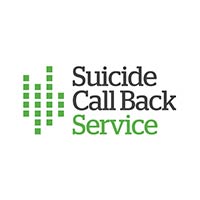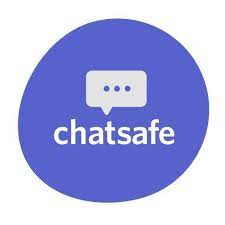
Staff supporting students Mental Health Toolkit
Need help now?
Who do I refer to?
Take home messages
Responding to a suicidal student
On this page:
- Responding to an unexpected death
- Responding to a death by suicide
- Responding to a non-fatal suicide attempt
- Responding to a student who may be suicidal
- How to ask someone if they are suicidal?
- How to respond if the student discloses thoughts of suicide?
- If the student tells you they aren't safe and you think a suicide attempt is imminent
- If the student discloses thoughts of suicide (but risk is not imminent)
- When a student loses a family member or friend
- If you are directly impacted by a student's suicide
- If a student dies by suicide on campus
- Further resources
Responding to an Unexpected Death
An unexpected death includes death by suicide as well as accidental death. The causes of suicide are complex and multifaceted. Despite research about common factors, we cannot predict who will die by suicide. Nonetheless, as a university community, we are committed to early intervention and preventative work.
If you hear about a death by suicide, Campus Care must be contacted.
Please remember that Campus Care will gather the best people to be involved in the Suicide Response Team. This team will co-ordinate what needs to happen according to our Responding to Suicide Policy - from respecting the family’s wishes regarding how to refer to this unexpected death through to media releases.
Campus Care can be contacted by any of the below, or you can submit a report via the online report form.
Phone: +61 2 49218600
campuscare@newcastle.edu.au
If you need support outside work hours, call Suicide Call Back Service on 1300 659 467 or the University of Newcastle After Hours Crisis Support Line 1300 653 007.
If it is an emergency, call 000. You can call 000 even if you’re not sure whether it is an emergency. They will provide you with advice.
Call Suicide Call Back Service Call After Hours Support Call 000
Here are some myths and facts from the Suicide Call Back Service
Fact: There is no evidence that talking to someone about suicidal thoughts is harmful.
You can ask the person directly if they are feeling suicidal or if they have been thinking about suicide. By discussing it openly and honestly, you are giving the person the opportunity to take the first steps towards getting the help they need. Our resources page has more information on talking to someone about suicide.
Fact: If someone talks about suicide or self-harms they are probably reaching out for help.
If someone talks to you about suicide, you can call Suicide Call Back Service on 1300 659 467 for help. If it is an emergency, call 000.
Fact: Suicidal thoughts are not permanent.
An increased risk is usually short-term and attached to a specific situation. People can get help and go on to live long and healthy lives.
Fact: Not everyone who is suicidal has a mental disorder.
Many people with mental disorders are not affected by suicidal behaviour.
Fact: There are often warning signs.
A person who is thinking about suicide will usually give some clues or signs to those around them that indicate they are distressed. These might be physical (e.g. loss of energy) or behavioural changes (e.g. emotional outbursts). Visit our resources page for warning signs to learn more.
Preferred Language
| Don't say | Say |
|---|---|
Committed suicide |
|
Successful suicide |
|
Completed suicide |
|
Failed attempt |
|
Unsuccessful attempt |
|
Why?
We want to avoid terms that sensationalise suicide or that present suicide as a crime or a sin or a desired outcome.
Adapted from Everymind - Role of Language and Stigma
Safety is always the first priority
In all the instances listed below, you are not expected to be an expert. Your role is to recognise they need help and refer on. Remember that there is a team around you to offer advice if you’re unsure.
In the highly unlikely event that you receive an email with an unambiguous reference to self harm or suicidal intention, it is worth noting that:
- You can call the University of Newcastle After-Hours Support Line 1300 653 007 for advice. Other helpful numbers are Mental Health Access Line 1800 011 511 or Suicide Call Back 1300 659 467.
- If you know the student’s address, call 000 and ask for police and ambulance support.
- Security can access the student’s address via NUSTAR if you have their student number.
- Emergency Services can usually trace the location of someone who calls 000 on their mobile.
Call After Hours Support Call Mental Health Access Call Suicide Call Back Service
Responding to a death by suicide
A suicide loss affects many people – family and close friends, acquaintances, classmates and work colleagues, academic mentors, supervisors and professional staff.
If you are informed about a death by suicide:
- Listen carefully and note the student’s details.
- Assist the person calling with their support needs.
- Contact Campus Care, CAPS, or your Manager who will guide you through procedures and support strategies and brief relevant staff.
- Know that we will work together as a community to support those impacted.
- Avoid speculation and don’t refer to a death as “suicide” unless this becomes official.
- Respect the wishes of family if they do not want the cause of death known.
- Discourage spreading information by social media.
- Discourage conversations that blame or reduce causes to a single reason, as causes of suicide are complex.
- In the coming months, look out for students who may be vulnerable to thoughts of suicide.
Responding to a non-fatal suicide attempt
Your first responsibility is to yourself. Do not do anything that compromises your own safety.
Your role is to try to keep the student safe until emergency services arrive.
- If you are having online or phone contact with the student, try to keep communication lines open until help arrives. Try to get details of their whereabouts and whether anyone is with them.
- If you are present with the student, look around to see if the environment can be made safer or more comfortable. For example, removing a knife, moving away from a high ledge, or creating a more private space for the person.
- Pause momentarily to gather the information at hand to convey to emergency services. Is the student
–physically injured? Have they told you what they’ve ingested? - Is there a colleague or bystander who can also assist?
- Call 000 for emergency services and follow their directions, then contact Security.
- Remain calm and caring, reassuring the student that you are there to help them and that more help is on its way.
- If other students are present, and time allows, direct them to a safe location where names can be taken and they will be offered follow up supports.
- If the situation is not urgent, contact security and Campus Care or the After Hours Support Line. Ensure to provide an incident report to Campus Care, once an emergency has been resolved.
Responding to a student who may be suicidal
Your first responsibility is to yourself. Do not do anything that compromises your own safety.
You are not expected to conduct a risk assessment. Your role is to try to keep the student safe until emergency services arrive.
Make a note of your contact with the student.
It is common to feel shocked or worried when a person discloses thoughts of suicide.
You may have noticed concerning changes in their behaviour:
- Less connection with friends, their studies, university staff
- Engaging with risky behaviours e.g. appearing under the influence of drugs and/or alcohol
- Changes in mood e.g. sadder, more withdrawn, angry or agitated
- Changes in appearance e.g. poor hygiene, bedraggled, exhausted
You may overhear or be told by other students that the student is:
- No longer engaging with activities that they used to enjoy
- Getting their affairs in order e.g. giving away possessions
- Writing goodbye letters or perhaps alluding to suicide in something they’ve written to you
- Talking about hurting or killing themselves
Do not ignore any of these warning signs.
If you are present with the student, look around to see if the environment can be made safer e.g. remove items which could cause harm; encourage them come to you if near an edge; ensure doors are open for your safety. If you are having online contact with the student, try to keep communication lines open until help arrives.
The student may have already attempted to end their life. They could appear disorientated, incoherent and unable to explain what is happening to them. They may be sweating, pale, bleeding, in pain or have breathing difficulties. Don’t delay. Call 000 and then call Security.
It can be highly distressing to be with a student who is expressing suicidal thoughts even if they have reassured you that they won’t act on these thoughts. It’s even more confronting if you’re responding to a suicide attempt. Take care of yourself and seek help to debrief. You may want to find out what training is available to support students who are highly distressed or suicidal.
- Commend the student for taking the step to talk to someone, and reassure them that help is available. You could say: “I want to be sure that we get the help you need, so I’m calling someone who can help.”
- During work hours, call Campus Care on 4921 8600 or Counselling and Psychological Service on 4921 6622 for further advice or to link the student with supports. If it is after hours, you can contact the Suicide Call Back Service on 1300 659 467 or the After-Hours Support Line on 1300 653 007 or Mental Health Line on 1800 011 511.
- If the student has clear intent to act upon their thoughts (i.e. they have a plan to hurt themselves in the near future), then treat this as an emergency and call 000, then call Security. The number for Security is on the back of your Staff Card. Security will ensure that the emergency services are guided to wherever you are on campus.
- Ensure to provide an incident report to Campus Care, once immediate actions have been resolved.
Remember you are not responsible for their actions.
Look after yourself by taking the time you need for yourself.
If can be helpful to debrief with a colleague or friend.
The Employee Assistance Program (EAP) is a confidential counselling service free for all University staff.
Call After Hours Support Call Mental Health Access Call Sucicide Call Back Service
How do I ask someone if they are they suicidal?
- You can help by showing you care and are willing to listen. For the student, being heard may provide considerable relief.
- Begin the conversation with: “I’ve noticed…, I’m concerned because...” Listen without judgment or criticism.
- Ask open ended questions, gently clarify information about risk and summarise (Put in hyperlink to ‘Creating the Environment’ resource).
- Do your best to be calm, confident and empathic while the student shares their experience.
- Ask directly about thoughts of suicide. For example, “Are you thinking of killing or hurting yourself?”
- “Sometimes when people are feeling really down, they have thoughts about suicide. Have you had any thoughts of suicide?”
How to respond if the student discloses thoughts of suicide?
- Take all disclosures seriously and acknowledge the reasons why the person wants to die.
- You might ask, “When did you first have thoughts of suicide?” and “Has anything happened recently to make you feel worse?”
- Ask whether they have plans. For example, “Do you have a plan for how or when you might try to hurt yourself?” “Have you taken any steps to prepare?” (e.g. storing up medication, gaining access to a weapon, getting affairs in order).
- Note – if they do have plans or have taken steps, this greatly increases risk.
- Take note if the student appears to be intoxicated or says they are hearing voices
- Let them know that many people think of suicide and try to offer hope of getting through hard times (if appropriate).
- Some people may have attempted suicide previously, which increases risk of future suicide attempts.
- Conversations can help to restore a sense of hope.
- Don’t argue about the morality of suicide, don’t minimise the person’s concerns or use guilt to convince the person to stay alive. For more information, see Lifeline Toolkit: Helping someone at risk of suicide.
If the student tells you they aren’t safe and you think a suicide attempt is imminent
- Trust your judgment.
- Don’t leave the person alone and do your best to work with them to keep them safe for now. Contact emergency services and security. If you have serious concerns, then it is ok to do this even if the person is refusing help.
- Say “I am not going anywhere, but I need to make a phone call to ensure that we get some help”
- If the student has access to means to harm themselves (e.g., medication, knife etc.), offer to remove this if safe to do so.
- Continue to be supportive until help arrives.
If the student discloses thoughts of suicide (but risk is not imminent)
- Encourage the person to talk to a professional and help them to connect with support services.
- Encourage them to access other supports. For example, is there a family member, partner or friend they would like to contact?
- You can seek advice from Campus Care or the After Hours Support Line. The Mental Health Line is also available 24 hours to provide professional help, advice and referrals to local mental health services.
Contact Campus Care Contact After Hours Support Call The Mental Health Line
When a student loses a family member or friend
- Be sensitive and maintain their privacy.
- Suicide affects people in different ways and each person’s grief is unique. Initial reactions may include shock, numbness or denial. It is common for people to focus on ‘why’ this has happened, and to feel responsible for not doing more.
- Provide clear pathways for the student to access support as needed. For example, adverse circumstances, Counselling, StandBySupport (offers excellent resources on Grief after death by suicide; Griefline is a free national helpline offing phone counselling Australia wide. For further information: see Postvention Australia.
Visit Standby Support Visit Griefline Visit Postvention Australia
If you are directly impacted by a student’s suicide
- It is common to experience shock, grief, anger, relief guilt or feelings of isolation.
- Reach out. You may be able to work through your grief with the help of family and friends, or you may need extra support. Don’t be afraid to ask. You can contact our Employee Assistance Program (EAP) at any time. Griefline and the Suicide Callback Service are specialist national helplines offing phone counselling Australia wide. StandBySupport offers excellent resources on grief after death by suicide.
- When a colleague is grieving the loss of a student, be compassionate and encourage them to seek supports.
Contact EAP Contact Griefline Contact Suicide Callback Service Contact StandBySupport
If a student dies by suicide on campus
First responder:
- Assess immediate risk and safety, provide first aid (if required)
- Call emergency services on 000
- Call Security on +61 2 49215888
- If possible, contain the site (taking advice from Emergency service personnel or Security)
- Campus Care and the Sudden Death Response team will advise how to best proceed and coordinate a response.
- The team will provide accurate information about where people can get further support and they will plan who will be advised and when, delivering consistent messages for students.
- Unless directly affected, maintain normal routines and classes as much as possible.
- Respect cultural needs.
Further resources
Helplines
Lifeline
11 13 14
A national charity providing all Australians experiencing emotional distress with access to 24 hour crisis support and suicide prevention services.
Griefline
1300 845 745
A national not-for-profit providing all Australians experiencing grief with telephone support along with other support options.
Suicide Call Back Service
1300 659 467
Suicide Call Back Service is a national 24/7 telehealth provider that offers free professional phone and online counselling for people living in Australia.
Resources for students
Suicide Call Back Service
1300 659 467
Suicide Call Back Service is a national 24/7 telehealth provider that offers free professional phone and online counselling for people living in Australia.
Chatsafe
Tools and tips to help people communicate safely online about suicide
Beyond Blue Beyond Now app
To help you stay safe if you are experiencing suicidal thoughts
Resources for staff
Training for staff
References
- https://www.universitiesaustralia.edu.au/wp-content/uploads/2020/09/210107-Suicide-Postvention-Toolkit-for-Australian-universities.pdf
- Responding to Suicide: a Toolkit for Australian Universities
- www.blackdoginstitute.org.au/wp-content/uploads/2020/04/an-evidence-based-systems-approach-to-suicide-prevention.pdf?sfvrsn=0
- An evidence-based systems approach to suicide prevention: guidance on planning, commissioning and monitoring Black Dog Institute (2016).
- Language matters p33 BDI 2016 paper
The University of Newcastle acknowledges the traditional custodians of the lands within our footprint areas: Awabakal, Darkinjung, Biripai, Worimi, Wonnarua, and Eora Nations. We also pay respect to the wisdom of our Elders past and present.






